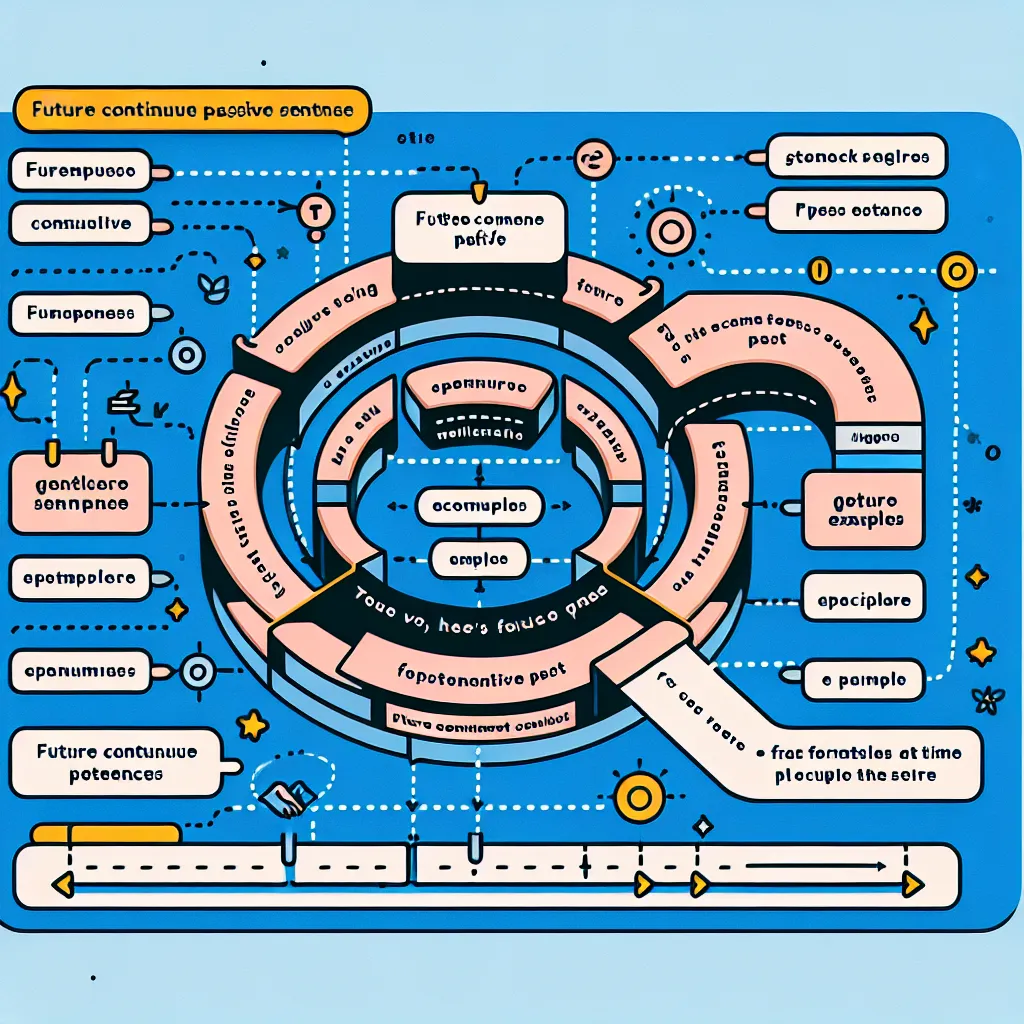The future continuous passive is an advanced grammatical structure that often appears in IELTS exams, particularly in the Writing and Speaking sections. Understanding and using this tense correctly can significantly enhance your performance and help you achieve a higher band score. Let’s delve into the intricacies of this tense and explore how to apply it effectively in your IELTS preparation.
Understanding the Future Continuous Passive
The future continuous passive is used to describe an ongoing action that will be happening at a specific point in the future, but with emphasis on the receiver of the action rather than the doer. This tense is particularly useful when discussing future processes, planned events, or anticipated situations.
For example:
- “The new bridge will be being constructed throughout next year.”
- “By this time tomorrow, the data will be being analyzed by our team.”
- “Next month, the company’s policies will be being reviewed by the board of directors.”
In each of these examples, the focus is on the action (constructing, analyzing, reviewing) that will be in progress at a future time, and the subject of the sentence is the recipient of the action rather than the doer.

Formula and Grammatical Structure
The formula for the future continuous passive is:
Subject + will + be + being + past participle
It’s crucial to remember this structure when crafting sentences for your IELTS responses. Let’s break down the components:
- “Will” indicates the future aspect
- “Be” is part of the passive voice construction
- “Being” shows the continuous nature of the action
- The past participle of the main verb completes the passive voice
For instance:
4. “The new software will be being installed on all computers next week.”
5. “During the renovation, the library will be being modernized to include more digital resources.”
Application in IELTS Writing and Speaking
IELTS Writing Task 2
In Writing Task 2, using the future continuous passive can demonstrate a high level of grammatical knowledge, potentially boosting your score in the Grammatical Range and Accuracy criterion. Here’s an example of how you might incorporate this tense into an essay about technological advancements:
“By 2030, it is likely that autonomous vehicles will be being tested on public roads in most major cities. While this technology will be being developed to improve safety and efficiency, concerns about job displacement in the transportation sector will be being addressed by policymakers and industry leaders.”
IELTS Speaking Part 3
In the Speaking test, particularly in Part 3 where you discuss more abstract topics, the future continuous passive can be used to express complex ideas about ongoing future processes:
Examiner: “How do you think cities will change in the next 50 years?”
Candidate: “I believe that in the coming decades, many aspects of urban life will be being transformed. For example, public transportation systems will be being constantly updated to accommodate growing populations and reduce carbon emissions. Additionally, older buildings will be being retrofitted with smart technology to improve energy efficiency.”
Strategies for Achieving Higher Band Scores
To achieve a higher band score, it’s important not only to use the future continuous passive correctly but also to use it appropriately and in conjunction with other advanced structures. Here are some strategies:
-
Combine with other tenses: “While the new airport will be being constructed over the next five years, temporary facilities will have been set up to handle increased traffic.”
-
Use in complex sentences: “Although the environmental impact will be being closely monitored, critics argue that the long-term effects of the project may not be fully understood until years after its completion.”
-
Incorporate into conditional statements: “If the current plans are approved, renewable energy sources will be being integrated into the power grid at an unprecedented rate by 2025.”
-
Use with modal verbs for speculation: “Experts predict that by 2040, vertical farming techniques might be being implemented in most urban areas to address food security concerns.”
Common Mistakes to Avoid
When using the future continuous passive, be aware of these common errors:
-
Incorrect word order:
- Incorrect: “The project will being be constructed next year.”
- Correct: “The project will be being constructed next year.”
-
Omitting ‘being’:
- Incorrect: “The data will be analyzed continuously next month.”
- Correct: “The data will be being analyzed continuously next month.”
-
Using with stative verbs:
- Incorrect: “The solution will be being known by next week.”
- Correct: “The solution will be known by next week.” (Use simple future passive instead)
-
Overuse:
- Avoid using this structure too frequently. It’s an advanced form and should be used sparingly and appropriately.
-
Confusion with future perfect passive:
- Incorrect: “By next year, the bridge will have been being built for five years.”
- Correct: “By next year, the bridge will have been built.” (Use future perfect passive for completed future actions)
Conclusion
Mastering the future continuous passive can significantly enhance your IELTS performance, particularly in the Writing and Speaking sections. Remember to use it to describe ongoing future actions in the passive voice, and practice incorporating it into complex sentences and discussions about future developments. As you prepare for your IELTS exam, try to identify opportunities to use this structure in your practice essays and speaking responses, always ensuring that it fits naturally within the context of your answer.
For further practice, consider how you might use the future continuous passive to discuss topics like environmental conservation efforts, technological innovations, or societal changes that are likely to be ongoing processes in the future. By doing so, you’ll not only improve your grammar but also demonstrate a sophisticated understanding of complex future scenarios – a valuable skill for achieving a high band score in IELTS.